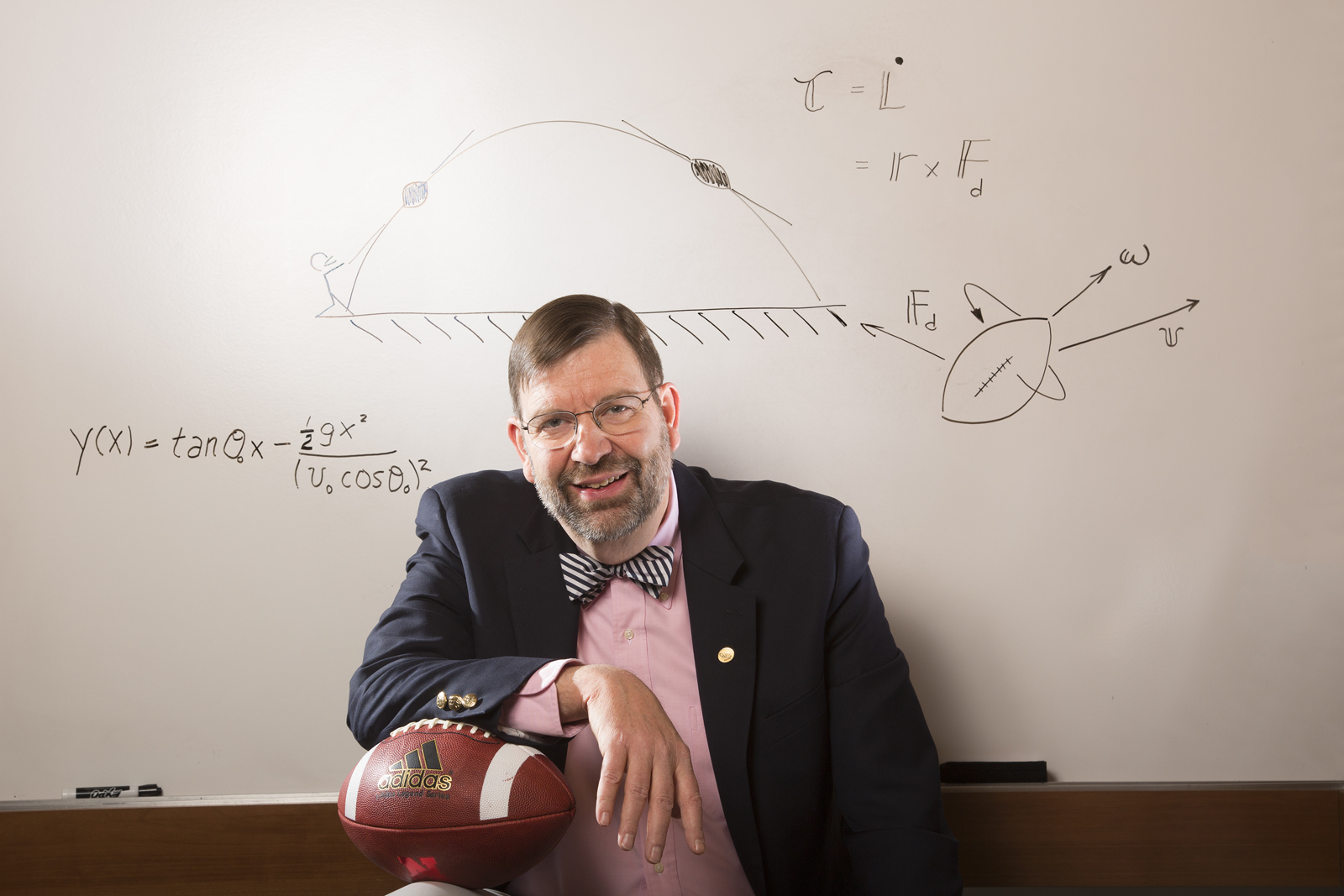
Football fans appreciate tackling, blocking and high-impact movements for their playmaking ability. But the reason those plays work – and the resulting collisions are risky – comes down to physics.
During the April 5 Nebraska Lecture, “Football: Its Physics and Future,” UNL physics professor Timothy Gay will discuss the history of American football, the physics of the large forces that occur on the field and the inherent dangers, attempts to ban the sport as early as 1900, how the current climate could lead to changes in the game, and UNL and national research efforts to understand and mitigate injuries.
Gay became a familiar face to Husker fans during the 1999-2000 seasons when his “Football Physics” lessons were shown on HuskerVision during games. The one-minute videos featured UNL football players demonstrating basic physics concepts, such as how Newton’s law of physics applied to blocking and tackling.
Gay, also the author of "Football Physics: The Science of the Game," is known for his upbeat presentations that make science accessible to a lay audience.
The free public lecture will be at 12:15 p.m. in Memorial Stadium, West Stadium Club. Beginning at 11:45 a.m., complimentary pizza will be available while supplies last. A live webcast (12:15 p.m. CDT) will be available at go.unl.edu/nl-timgay. An archived video will be available for later viewing within a week after the event.
Nationally, there is growing concern about the long-term consequences of concussions and injuries sustained during athletic competition. During his lecture, Gay will share examples of UNL’s efforts to bring together athletics and research to study how the brain behaves after a concussion. This knowledge could lead to new insights about preventing concussions and determining when an injured player can safely return to the field.
“Nebraska is unique in forward-thinking research in this area,” Gay said. “Exciting things are happening here that will make an impact on the future of the sport.”
The lecture series features distinguished UNL faculty, is designed for general audiences and provides insights about some of the university’s leading research, scholarly and creative activity. Gay’s lecture is sponsored by the UNL Research Council, Office of the Chancellor, Office of Research and Economic Development and in partnership with the Osher Lifelong Learning Institute.
More details at: http://go.unl.edu/egs